Boca vs River is the Copa Libertadores final Argentina has craved – but will the country cope with the carnage?
The Superclásico is no ordinary football rivalry. Clashes between the sides are notoriously brutal, dividing Argentinian society in two, while the forthcoming Superfinal has also co-opted for political purposes by the country’s president, Mauricio Macri
By all accounts it was a typical Sunday in Apóstoles. The sleepy city located in Misiones, that part of north-eastern Argentina that appears to reach out towards the Amazon rainforest, creating a buffer between Brazil and Paraguay, is a small agricultural hub and the capital of the country's iconic yerba mate, a stimulating tea-like drink. The greater part of the day would have been given over to languid family lunches, while as the afternoon dragged on friends and neighbours rose from the siesta and congregated to sip mate and catch up on local gossip.
Arturo and Oscar were no different. The pair were formerly brothers-in-law, but had kept up their friendship even when that bond fell apart. Conversation inevitably turned to football. Nobody at that point could have guessed that the day would end with Arturo watching helplessly as his modest house burned to the ground, losing everything despite the efforts of firefighters and neighbours, who pitched in with buckets and garbage cans full of water, to control the blaze.
He was the victim of an arson attack perpetrated by none other than his friend when their argument over whether Boca Juniors or River Plate would win the Copa Libertadores spiralled out of control.
“They were discussing which of the two was the best and the fire started,” police sources indicated to Misiones newspaper El Territorio. Hundreds of miles from the bustling streets of Buenos Aires that both Libertadores finalists call home, the two-legged showdown that begins this Saturday at Boca's iconic Bombonera was already being played out in the fiercest fashion.
Be it in football or in politics, la grieta (the divide) is said to cleave Argentine society neatly in two antagonistic forces. One is either peronist or anti-peronist, a fervent supporter of former president Cristina Fernández de Kirchner or convinced that she should spend the rest of her life behind bars. A supporter of Boca, or River. While this is a wildly simplistic definition – not to mention disrespectful to the rest of Argentina's teams – there is a grain of truth behind it.
The most recent comprehensive studies assert that Boca claim 40 per cent of the nation's football fans, placing River in a distant second place with a still-sizeable 26%. Between them the two Superclásico participants boast no less than two-thirds of the population and are the only teams who can claim a legitimately nationwide following. Clashes between the sides are notoriously brutal, both on and off the pitch; but this, the first time ever that they have faced off in a Libertadores final, promises to surpass all others in terms of pure hype and tension.
The Superfinal, as it has been dubbed in the press, also arrives at a particularly sensitive time for Argentina. Floundering under the administration of right-leaning president Mauricio Macri, the Argentine peso has more than halved in value against the US dollar since the start of 2018, while an acute foreign exchange deficit caused Macri to call for aid from the International Monetary Fund, an institution reviled by many in the country for its perceived role in the devastating debt crisis of 2001.
Interest rates currently run at close to 70% in an attempt to stem further appreciation of the dollar, a policy that has initially born fruit by providing a more stable exchange rate while also strangling the local economy, causing indicators to plummet. In the background that old Argentine nemesis, inflation, continues to lurk: prices have risen inter-annually at a rate of 44%, far outstripping salary gains in a country where around a third of the population lie stubbornly below or on the brink of the poverty line. Attempts to reform pensions in December, and more recently pass a Budget that would further accelerate austerity measures, were met with violent protests around Buenos Aires' Congress building, with scores arrested and injured in clashes with police.
One would imagine that faced with such a headache, Argentina's president would have little time for this final, perhaps limiting himself to a generic message along the lines of 'may the best team win' and pleading for a 'festival of football' free of deplorable incidents. But then Macri is not just any head of state. A former president of Boca who used the club's spectacular success in the early 2000s under Carlos Bianchi to propel himself into local and later national politics, his use of football shtick is infamous in diplomatic circles, with the likes of Angela Merkel, Vladimir Putin and Iván Duque all finding themselves on the end of their Argentine counterpart's sport-related humour in formal summits and ceremonies.
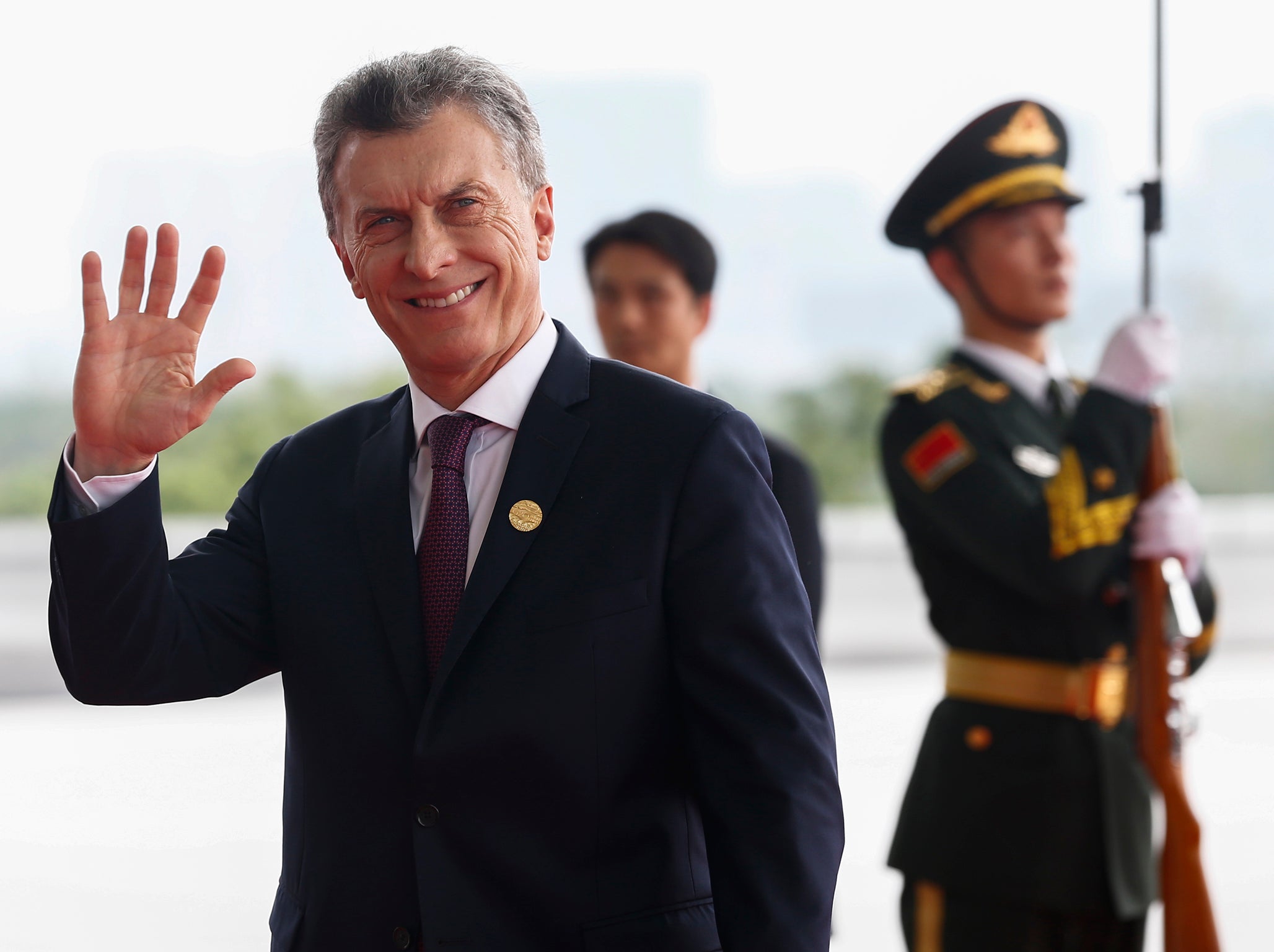
And far from calming strained nerves in the build-up to the final, Macri has fanned the flames.
The day after Boca joined River in the decider the president spent the best part of twenty four hours on a quixotic mission to allow away fans to attend both legs, in a city which has banned visitors from stadiums for the best part of the last six years. “I remember that [2004] semi-final we won against River and the stadium was in silence,” he said to Radio la Red, comments that caused uproar among River fans and neutrals alike. “I woke up this morning and said 'we are going to make sure this final has the flavour of Argentine football.”
“Macri let slip the side of him that is a Boca fan, he wasn't commenting as a football official, much less as a president,” journalist and author Andrés Burgo explained. “It was a completely individual action, he did not speak with anybody, a mistake on his part. He spoke as a Boca fan and thinking of the good image a final with two sets of fans would give the world.”
Both Boca and River expressed their opposition to the initiative, pointing out, not unjustifiably, that after three years of inaction during the president's administration on the subject of normalising the entry of away fans it was unreasonable to take such measures for the two most heated matches in Argentina's history.
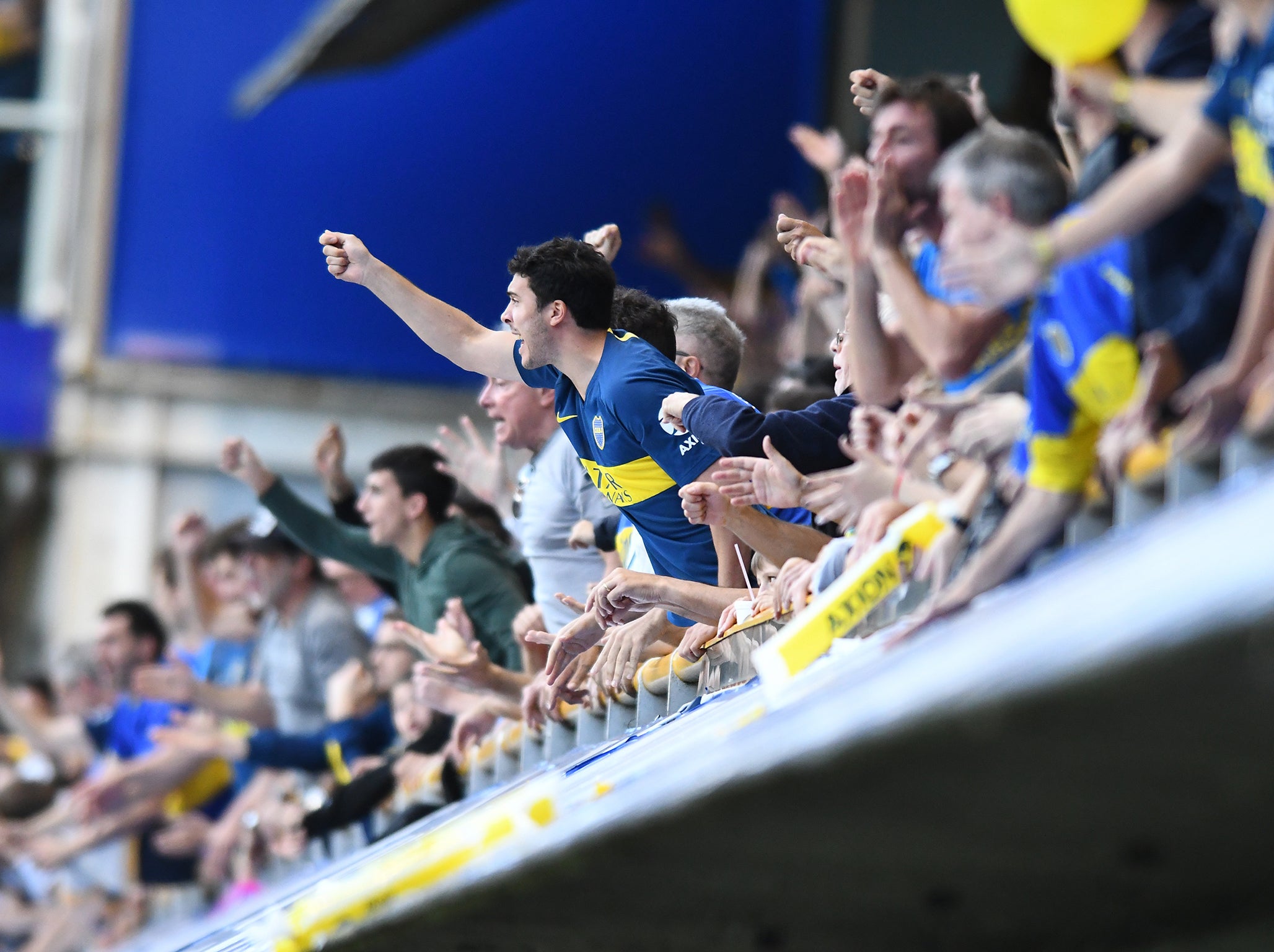
But Macri continued. In an unprecedented ninety-minute interview with Fox Sports that same Friday – imagine Theresa May commandeering the Match of the Day airwaves to speak out on a Liverpool-Manchester United clash – he reiterated his support for the reinstating of visitors, while ultimately passing the buck onto the clubs for the final decision. Security minister Patricia Bullrich echoed the line passed down by the president, employing even more cavalier terms to América TV: “This is not the president's whim, he who dares wins. We have to be brave enough to take steps. We always used to talk about deaths, but now things have changed for the better.”
The bare statistics do show some improvement, albeit in very limited terms and bearing little causation to the limited measures taken by national and provincial governments over the intervening years. In 2013, the year away fans were banned from Primera División stadiums (in the lower tiers a similar prohibition, with isolated exceptions, has been in place since 2007) fifteen people lost their lives in violent incidents related to football. That number jumped to eighteen in the twelve months after the ban, before dropping to seven in 2015, five in 2016, six in 2017 and six so far this year, according to the data compiled by non-governmental organisation Salvemos al Fútbol (Let's Save Football).
The president of the group was just one of those who spoke out against the plan, which ultimately came to nothing. “He is reckless and irresponsible,” former judge Mariano Berges stated. “The failure in football is evident over the past few years. In five years not one training workshop with club directors has been carried out to prepare for such an event.”
The vast majority of deaths owe to internal struggles between the mafia-like barra brava hooligan groups, hungry for control of the terraces and the corresponding 'black boxes' of money left by club directors in exchange for installing order: a lucrative business at Argentina's biggest sides like Boca and River often supplemented by control of illegal car parking, ticket resale and merchandising that can add up to outrageous potential for profit. Neither Macri, nor almost any president has acted strongly to end this illicit association, in effect turning a blind eye to groups unafraid of solving their disputes with copious shedding of blood.
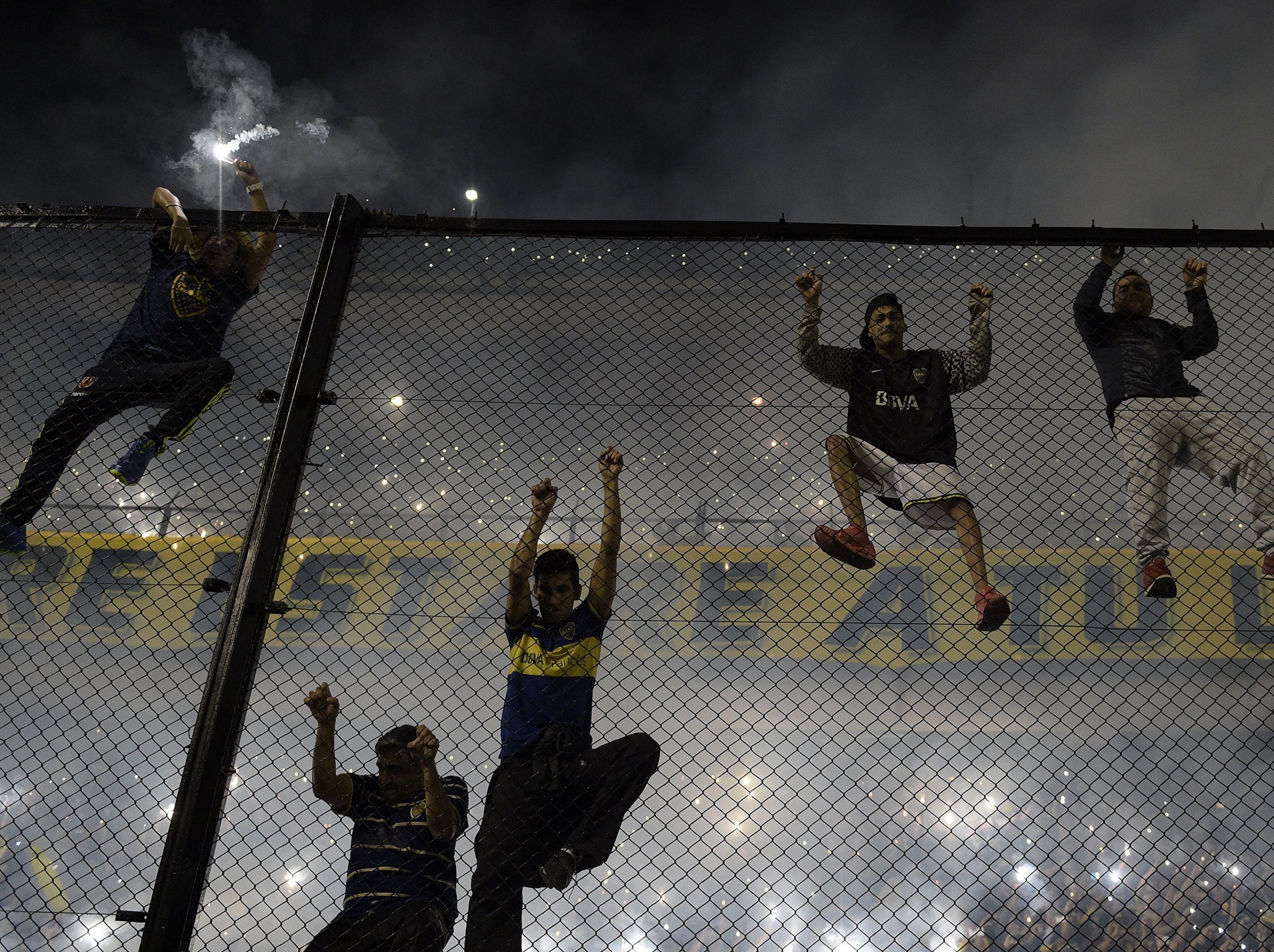
Even while Macri was pouring his heart out to Fox Sports, the backlash was on its way. And it came from the most unlikely of sources: former San Lorenzo player Diego Díaz, now a journalist for TyC Sports, a channel that tends to align with the government due to its partnership with media behemoth Clarín.
“After what appeared to be a morning whim from the president, we can reveal that the finals will be played without visitors,” he fired on evening show No Todo Pasa. “If we have to give an example to the world we should start with the people who are hungry, with crime, education, the amount of poor people this country has and not the example a football match can give.
“What country do you live in? What social sensibilities is the government showing? The image we have to show the world is improving the economy, you said solving inflation was a piece of cake. You are no longer Boca's president. You are Argentina's president.”
Seemingly unmoved by the critics Macri continued to raise temperatures, telling a group of factory workers “this time it has to go our way, that jammy [River coach Marcelo] Gallardo.” This time it was Millonario president Rodolfo D'Onofrio who went on the offensive. “Leave all that for another time, leave it for your friends. But those of us who are at the forefront have to send the message that this is a game, it is fun,” he said in a stinging rebuke to the head of state.
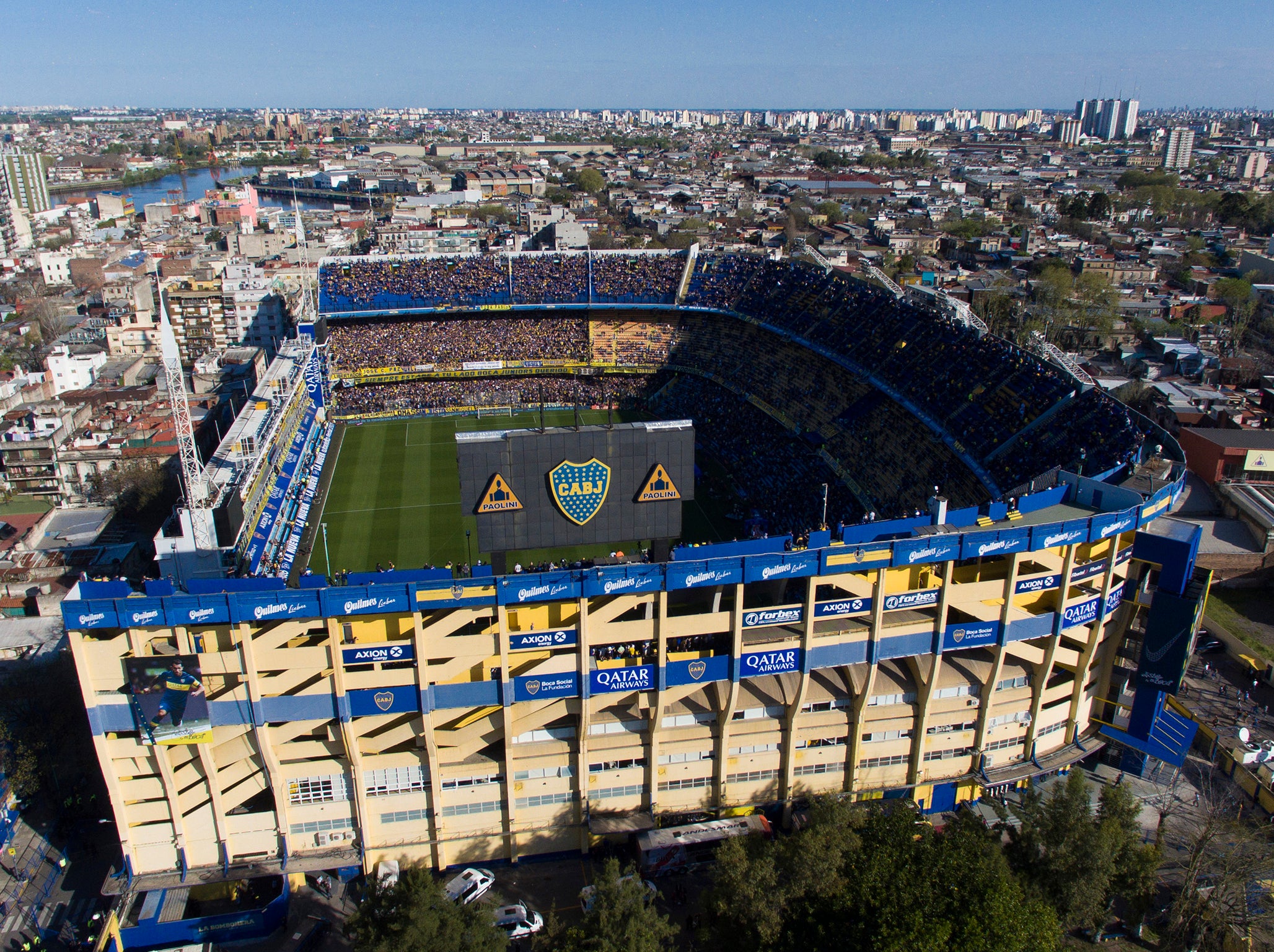
Given that the last time the two teams met in the Libertadores the second leg could not even be completed, after several River players were left needing hospital treatment following an attack with home-made pepper spray in the Bombonera, this seems an eminently more sensible approach. Not only were visiting fans ultimately vetoed, but in a twist worthy of Gabriel García Márquez's chaotic Macondo the same security authorities that first gave the green light later said that supporters of the winning team would be barred from congregating at Buenos Aires' Obelisco, the traditional spot for title celebrations – only to inevitably back-track once again a matter of hours later.
“The conditions are not there to let away fans back,” Burgo added. “Least of all based on [Macri's] tweet, that does not solve the violence. Waking up one day and deciding there should be away fans so the whole world can see is not the way to solve the problem. I do not think that visitors as we once knew them will ever be able to return.”
Doubtlessly, it plays into Macri's favour to keep the Superfinal on the front pages. With grave economic turmoil heightening month by month the final stretch of 2018 is expected to be a critical period in his administration. December in particular is notorious as a flashpoint month in Argentine society, with previous years seeing widespread looting and social upheaval amongst the nation's marginalised poor. Further protests are expected on November 30, when the G20 meets in Buenos Aires; massive security preparations are in place already to avoid potential violence.
The head of state cuts a beleaguered figure, propped up by the hated IMF and, prompted by the election of extremist Jair Bolsonaro in neighbouring Brazil, toying with a sharp rightward shift in policies such as policing, immigration and gun ownership. As long as River and Boca dominate the headlines, the economy takes a back seat even amongst those struggling to make ends meet at the end of the month.
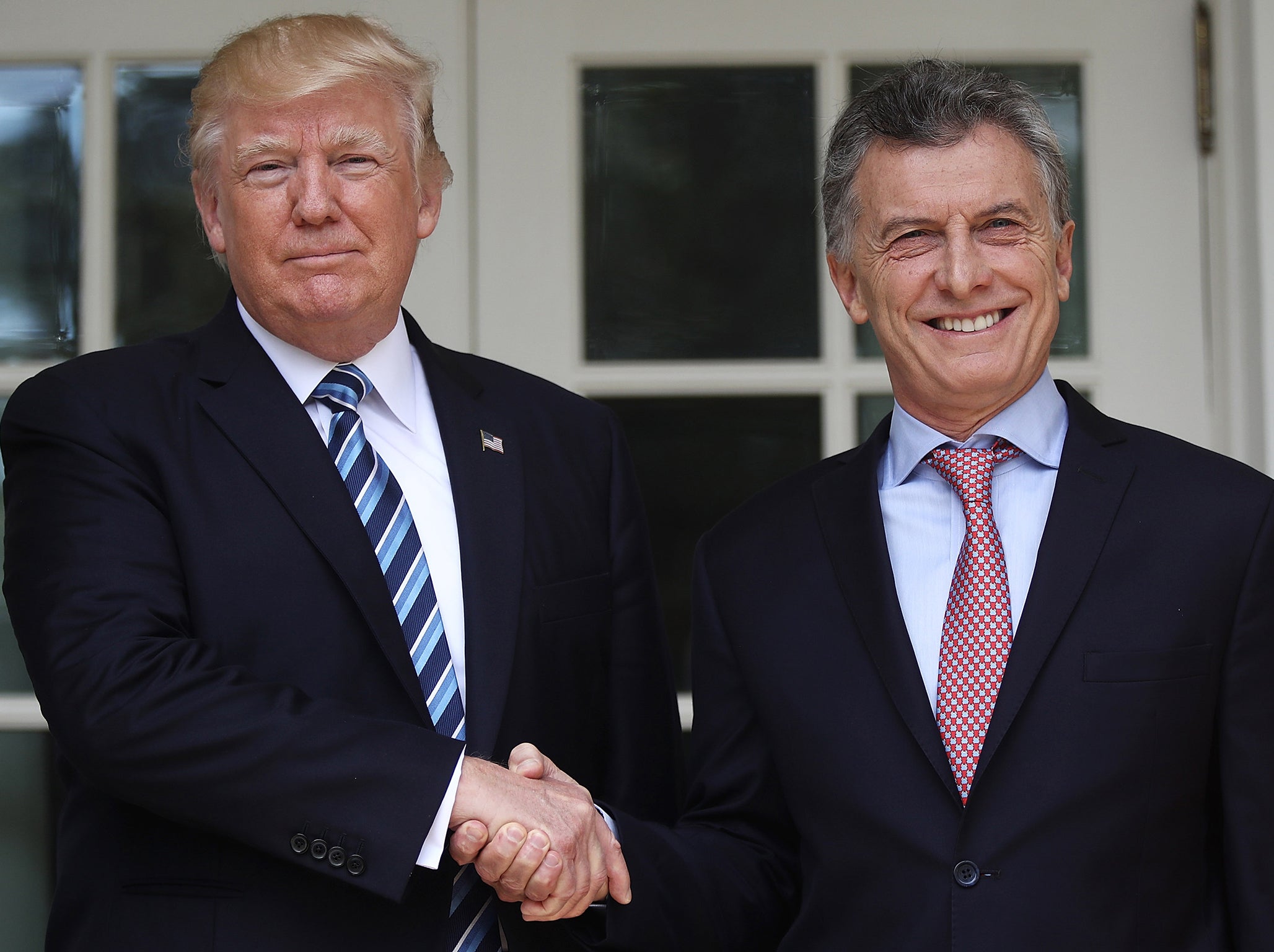
But then perhaps this analysis imparts an overly Machiavellian spin on Macri's actions. It might just be that, as frustrated adults look back with longing on those endless summer days of childhood, the president misses his time ruling the roost at the Bombonera. Battered by the harsh realities of the presidency, he pines over an age when everything was simple, where Libertadores titles rained down from the heavens and he was the toast of La Boca. Further back in his mind lies the dream of the 2030 World Cup, a bid which can only benefit from the world stage afforded to Boca-River and this enticing double header.
If only things were that simple. Neither a win for Boca nor River will solve Argentina's latent problems, nor will the spectacle of this dream final do more than paper over the cracks of a local football world that suffers from deep-seated failings in areas as varied as infrastructure and playing quality, security and corruption. The Copa Libertadores champions will be treated to an unforgettable night of celebrations on November 24, complete with a trip to the Obelisco and the promise of a lifetime of gloating over their arch-rivals. But when they wake up the next morning it will all feel like a dream.
As much for Macri as for the unfortunate Arturo staring at the smouldering wreckage of his home in Apóstoles life will go on, as painful and unabated as ever.
Join our commenting forum
Join thought-provoking conversations, follow other Independent readers and see their replies
Comments
Bookmark popover
Removed from bookmarks